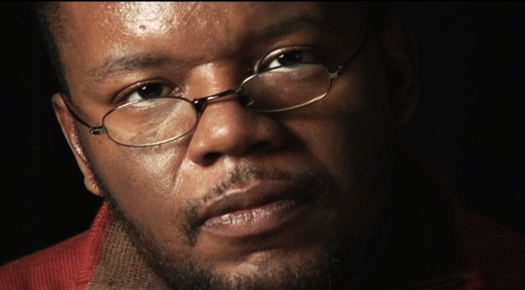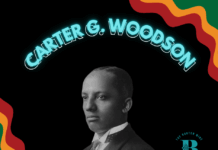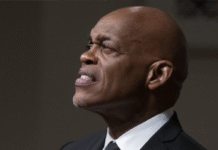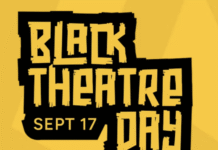
(Photo Credit: Gush Productions)
A Fragile Trust: Plagiarism, Power and Jayson Blair at the New York Times is the 75-minute feature documentary directed by Samantha Grant that recounts one of the most notorious scandals in the history of American journalism. African American columnist Jayson Blair resigned from the New York Times in 2003 and experienced a backlash of humiliation. He was exposed in countless headlines for serial plagiarism, manipulating his editorial superiors and concocting a series of fraudulent published narratives.
A Fragile Trust starts out portraying Blair as an inquisitive Maryland native who was the product of a middle class, well-educated background. Like many of his pre-digital reporting contemporaries, Blair was an exceptional talent who demonstrated great work ethic, undying passion and the focus to “educate, inform and make life better.” The University of Maryland, College Park alumnus-turned-Times intern left quite an impression on his peers as an extroverted team player with an expanding list of bylines.
However, Blair’s professionalism became synonymous with countless grammatical errors, questionable information that was often retracted and habitually missed meetings. Profiled either working from behind his laptop or through close-up shots throughout the film, Blair, who appears on-screen scruffy yet with obvious remorse, talks openly since the controversy went viral in 2003 about fabricating stories, not traveling on his beats to complete assignments and missing numerous deadlines for the source known domestically and abroad for featuring “All the News That’s Fit to Print.”
A Fragile Trust integrates sketches, tear sheets, magic eye-styled news print, never-before-seen home movies of Blair and archived broadcast footage. Grant’s razor sharp investigative reporting and melodramatic story provide cohesive details into Blair’s downfall. The Stanford University Knight Fellow and UC Berkeley lecturer exposes Blair’s self-deprecating pressure to live up to the newspaper’s image, drug abuse, bouts of depression and his bipolar disorder.
Commentaries from various New York Times staff members, Washington Post editors, media scholars and cultural critics contextualize how the consequences of Blair’s actions trickled down to ongoing ridicule across communities. Because Blair was a young black male, debates from primarily conservative broadcasters and brow-raising political commentators distorted and assumed that his position at the Times was a product of race and affirmative action. Considering the “Blair Affair” occurred prior to numerous syndicated newspapers transitioning over to the web, the controversy was the catalyst for newspaper staffs to realign their infrastructure and meticulously research coverage before it airs
The main problem with Blair, a life coach and public speaker, currently is that he still doesn’t provide an answer for sabotaging his career or why he manipulated so many people. On the other hand, A Fragile Trust, an official selection at many film festivals nationwide, is a multidisciplinary portrait that appeals to not just aspiring media professionals but also other disciplines such as ethics, psychology, race relations and mental health.
The film is a stellar cautionary tale and morality play that will hopefully inspire future generations of journalists, bloggers and opinion leaders to be accountable for their editorial discretion and how they will distribute information to their audiences.
A Fragile Trust: Plagiarism, Power and Jayson Blair at the New York Times makes it television premiere on Mon., May. 5 at 10:00 p.m. on PBS as part of the Independent Lens series. Check local listings for channel information.
This post was written by Christopher A. Daniel, pop cultural critic and music editor for The Burton Wire. He is also a contributing writer for Urban Lux Magazine and Blues & Soul Magazine. Follow Christopher @Journalistorian on Twitter.
Like The Burton Wire on Facebook. Follow us on Twitter @TheBurtonWire.







